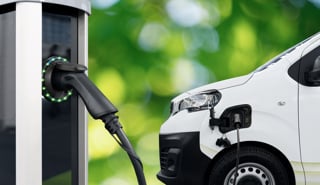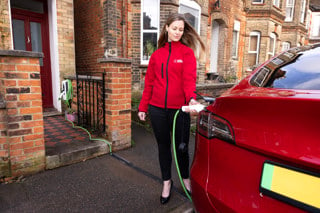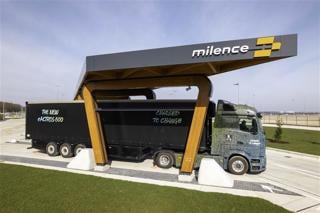The vast majority of businesses currently have no plans to expand their mobility options for employees, according to the latest Fleet200 Strategy Network survey on car fleet trends for 2023.
Eighty-six per cent of respondents to the survey – sponsored by AssetWorks, BP, ATS Euromaster, MotorAssist and Novuna Vehicle Solutions – don’t offer a mobility budget/card and are not considering one, plus
- 84% don’t offer bike/scooter sharing and aren’t considering introducing it
- 80% don’t have a corporate car sharing scheme and have no plans to introduce one
- 79% don’t offer ride sharing and aren’t considering it,
- 72% don’t offer public transport and have no plans to.
Giving employees more mobility options is not a priority for organisations as they are preoccupied with the transition to electric vehicles (EVs), and managing the rising cost of leasing, fuel, EV charging, insurance, accident repairs, service maintenance and repair (SMR) and tyres.
However, greenhouse gas (GHG) emissions reporting requirements mean that businesses need to consider not only their direct CO2 emissions from company vehicles but also their indirect emissions from commuting and their supply chain.
 These reporting requirements will make mobility options a “necessity”, according to Denise Hawkins, fleet manager at Stannah Management Services.
These reporting requirements will make mobility options a “necessity”, according to Denise Hawkins, fleet manager at Stannah Management Services.
Although business may not be “there yet” with their mobility strategies it’s “definitely on the horizon”, she said.
Public sector organisations more open to alternative transport
In most cases, public sector organisations are more open to alternative methods of transport than private sector businesses, as they have been under greater pressure to lead the way in reducing emissions.
More than a fifth (28%) of public sector fleets have a car sharing scheme or are considering introducing one (versus 18% of private sector fleets), 36% offer ride sharing or are considering it (versus (19%) and 43% offer public transport or are thinking about offering it (compared to 25%).
Larger fleets (more than 500 vehicles) are more likely to have introduced mobility options than SMEs with 100 or fewer vehicles.
A fifth of large fleets have introduced or are considering a mobility budget/card compared to 6% of small fleets, 24% of large fleets offer a ride sharing or are thinking about it (versus 6%) and 29% of large fleets have a corporate car sharing scheme or are considering one (versus 6%).
Chris Connors, head of fleet and travel (UK and Ireland) at ISS, which has a fleet of 550 company cars, 650 cash allowance drivers and 1,150 vans, says the company is starting to promote car sharing.
“One of the recommendations is that if you’ve got a number of people attending the same meeting, can you share the travel? That’s from a decarbonisation and sustainability angle,” he said.
“In terms of other mobility solutions, like e-scooters and e-bikes, it’s something that is on the to-do list to look into but it's not a current priority.”
Scooters bring security challenges
Peter Jardine, group fleet director at Connells Group, introduced scooters to his London fleet in 2018 for use by photographers. It allows them to travel around London more quickly and therefore photograph more properties in one day.
All of the riders have completed their CBT (compulsory basic training) as a minimum and wearing protective equipment is mandatory. The head of the photography team is responsible for ensuring the scooters are maintained regularly at a local bike shop.
The photography team currently has two Piaggio Medley 125cc petrol scooters, which are lightweight and have proved to be susceptible to thieves.
“There have been no accidents but they do get stolen,” Jardine said. “We do chain the bikes to a lamppost but we’ve had incidents where the photographer has taken some pictures of a house, come back and the bike has gone because a thief has used some bolt cutters, put the bike in the back of a van and driven off.”
Jardine has also considered car clubs but as estate agency work is reactive and employees would need exclusive use of a vehicle it has worked out cheaper to have a pool car.
Read the report which looks at strategies to tackle rising fleet costs here.






















Login to comment
Comments
No comments have been made yet.